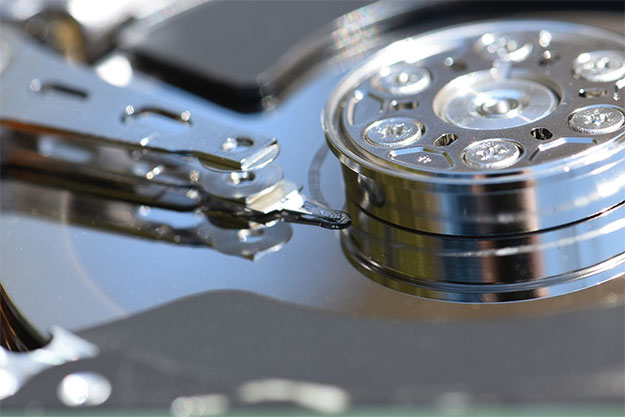Thumping Bass? Researchers Demonstrate Hard Drive Crashing Sonic Attacks With Standard Speakers

Security researchers from the University of Michigan and Zhejiang University in China have published a paper on an acoustic attack vector that could crash a mechanical hard drive, leading to damage for both the hardware and software. The attack does not require fancy equipment, either—an attacker could use regular, built-in speakers or nearby emitters to cause persistent errors on the target system.
"Our experiments show that audible sound causes the head stack assembly to vibrate outside of operational bounds; ultrasonic sound causes false positives in the shock sensor, which is designed to prevent a head crash. The problem poses a challenge for legacy magnetic disks that remain stubbornly common in safety critical applications such as medical devices and other highly utilized systems difficult to sunset," the researchers state in their paper.

Source: University of Michigan
As explained in the paper, modern mechanical hard drives use sensor-driven feed-forward controllers to adjust the HDD assembly's head position. By using ultrasonic vibrations, an attacker can trigger false positives for parking the head. Audible tones can also vibrate the read/write head(s), causing poor positioning and forcing the parts to operate outside of their normal parameters. In either case, the hard drive is no longer functioning as it was designed, which can both damage the actual drive and corrupt files.
"An adversary can attack a
HDD by inducing vibration via acoustic emitters built into the
victim system (or a nearby system). In this case an adversary
would temporarily control an emitter in the system though
some means. The attack is more likely to succeed when the
emitter is powerful and/or very close to the victim," the study states.
Leveraging this sort of attack would require accessing nearby speakers or emitters. This obviously presents a challenge, especially for remote attacks. However, the researchers point out that something like this could be accomplished through a standard phishing attack, or otherwise delivering malicious JavaScript to a victim's PC so that it plays damaging audio through the system's speakers.

The success of something like this also depends on the frequency response of the built-in speakers. Not all speakers are capable of pulling off this type of attack, though some are, the study states. For example, the researches note that their tests measured a Dell XPS 15 9550 laptop's output to be as high as 103 dB SPL from 1 cm away, while writing block signals can occur from using signals as low as 95.6 db SPL.
"This demonstrates the possibility of using the laptop's own speakers to attacks its own hard drive," the paper states.
For now, it doesn't appear that this is something home consumers need to fret over. However, businesses and government agencies may want to heed the warning and add this type of the attack to the list of ones to be on the lookout for.

